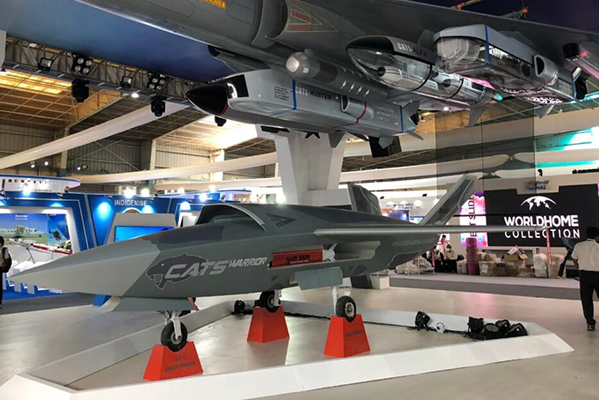The three Services are planning to acquire a sizeable number of unmanned aerial platforms in the next few years to significantly ramp up their surveillance capability, particularly to monitor Chinese activities along the LAC and Indian Ocean Region. Each of the three Services has drawn up plans for the acquisition of the new-age platforms.
Rotary Wing Drone
HAL is working on an AI-driven multi-role, advanced and long-endurance drone for strategic missions in high-altitude areas including along the frontiers with China.
The rotary-wing drone will have the capability to carry a load of 40 kgs, including missiles and sensors, and it is being developed considering the requirement of the armed forces to keep a strong vigil over the mountainous areas along the Line of Actual Control (LAC).
HAL has set a target of conducting the maiden test-flying of the unmanned aerial vehicle (UAV) by the middle of next year and plans to produce 60 such platforms in the first phase of the project.
Manned-Unmanned Combat Air Teaming System
The HAL Combat Air Teaming System (CATS) is a planned unmanned and manned combat aircraft air teaming system being developed by HAL.
The system will consist of a manned fighter aircraft acting as “mothership” of the system and a set of swarming UAVs and UCAVs governed by the main aircraft. A twin-seated HAL Tejas is likely to be the main fighter aircraft. Various other sub components of the system are currently under development and will be jointly produced by HAL, NAL, DRDO and NewSpace Research & Technologies. The primary aim is to make multiple advanced aerial platforms that can act as atmospheric satellite for high altitude surveillance, perform autonomous deep penetration precision strikes from standoff distance with maximum firepower while reduce human error and the threat on life.
CATS Warrior
Like the loyal wingman drone, it is also an unmanned stealth platform which can be controlled by the Mothership CATS LCA-MAX in formation of 2-4 warrior drone from as far as 150 kilometers and is able to fly alongside it to accomplish tasks such as scouting, absorbing enemy fire or even attacking the targets if necessary with its internal weapons.
CATS Hunter
It is designed as a low observable standoff air-launched cruise missile that can be integrated into CATS MAX, Mirage 2000, Jaguar or Su-30MKI and will consist of an interchangeable weapon carriage section based on mission profile that can carry 250 kg of unitary warhead or cluster munition(s) with a striking range of 200–300 km. Once the payload is dropped at the designated target, CATS Hunter will be able to return and can be recovered through a two tier parachute system.
CATS ALFA
It is a carrier which will contains the Air Launched Flexible Asset-Swarm (ALFA-S) loitering munition. The carrier is capable of gliding and can cover around 100 km distance after being launched from the mothership. After reaching the desired distance, the ALFA-S can automatically separate from CATS ALFA and fly using its own propulsion thereby increasing the overall striking range.
CATS Infinity
The first flight of the system designed for high altitude pseudo satellite (HAPS) role was planned from 2019. Infinity is designed to be equipped with terrain mapping camera and will have the capability of producing airborne real time cueing hyperspectral enhanced reconnaissance for deep strike aerial missions inside enemy territory. The CATS Infinity will act as communication bridge between UAV and satellite(s), by providing live video feed and images of the battlefield.













